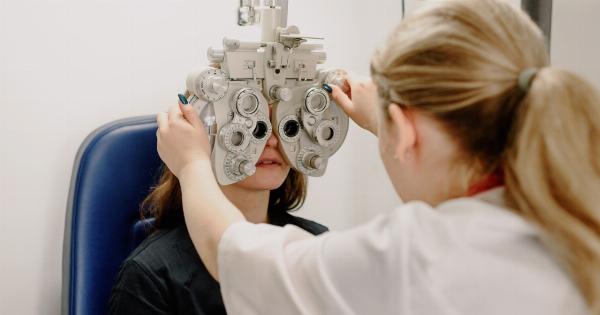A stroke is a medical emergency that occurs when the blood supply to part of the brain is interrupted or severely reduced, depriving brain tissue of oxygen and nutrients.
Strokes can have devastating consequences, including paralysis, speech impairment, and even death. Therefore, preventing strokes is critical to maintaining good health and quality of life. In this article, we will explore the exams that are recommended for stroke prevention.
Blood Pressure Tests
Blood pressure is one of the leading causes of strokes, with high blood pressure increasing the risk of stroke by four to six times.
Therefore, it is crucial to have your blood pressure checked regularly, especially if you have a family history of hypertension or have other risk factors for stroke. Blood pressure tests are simple, non-invasive exams that measure the force of blood against the walls of your arteries.
If your blood pressure is consistently high, your doctor may recommend lifestyle changes such as diet and exercise or prescribe medication to lower your blood pressure.
Cholesterol Tests
Cholesterol is a waxy substance that is essential for cell function, but too much of it can clog your arteries and increase your risk of strokes and heart attacks.
Therefore, it is essential to have your cholesterol levels checked regularly, especially if you have a family history of high cholesterol or other risk factors for stroke. Cholesterol tests are simple blood tests that measure your total cholesterol levels, as well as your levels of LDL (bad) cholesterol and HDL (good) cholesterol.
If your cholesterol levels are too high, your doctor may recommend lifestyle changes such as diet and exercise or prescribe medication to lower your cholesterol.
Blood Sugar Tests
High blood sugar levels can damage your blood vessels and increase your risk of strokes, especially if you have diabetes.
Therefore, it is crucial to have your blood sugar levels checked regularly, especially if you have a family history of diabetes or other risk factors for stroke. Blood sugar tests are simple blood tests that measure your fasting blood sugar levels. If your blood sugar levels are too high, your doctor may recommend lifestyle changes such as diet and exercise or prescribe medication to control your blood sugar.
Carotid Ultrasound Tests
The carotid arteries are the main blood vessels that supply blood to your brain. If these arteries become narrowed or blocked due to a buildup of plaque, it can increase your risk of stroke.
Carotid ultrasound tests are non-invasive exams that use sound waves to create images of your carotid arteries and evaluate the blood flow through them. If your carotid ultrasound shows evidence of plaque buildup, your doctor may recommend lifestyle changes such as diet and exercise or prescribe medication to lower your cholesterol or blood pressure.
Electrocardiogram (ECG or EKG) Test
The heart is a crucial organ that pumps blood to the rest of your body, including your brain. Certain heart conditions such as atrial fibrillation (AFib) or heart valve abnormalities can increase your risk of strokes.
An electrocardiogram (ECG or EKG) test is a non-invasive exam that measures the electrical activity of your heart and can detect irregular heart rhythms and other abnormalities. If your ECG shows evidence of a heart condition that increases your risk of stroke, your doctor may recommend medication or other treatments to lower your risk.
Imaging Tests
Imaging tests such as magnetic resonance imaging (MRI) or computed tomography (CT) scans can provide detailed images of your brain and detect abnormalities such as tumors, aneurysms, or other conditions that increase your risk of strokes.
If your imaging tests show evidence of a brain abnormality that increases your risk of stroke, your doctor may recommend medication or surgery to reduce your risk.
Genetic Tests
Recent research has identified several genetic mutations and variations that can increase your risk of strokes.
If you have a family history of stroke, or if you have other risk factors for stroke but are not sure why, you may want to consider genetic testing. Genetic tests are blood tests that can detect mutations or variations in specific genes that affect your risk of stroke.
If your genetic tests show evidence of a stroke-related gene mutation, your doctor may recommend medication or other treatments to lower your risk.
Lifestyle and Behavioral Assessments
Your lifestyle and behavior can have a significant impact on your risk of strokes. Therefore, your doctor may ask you questions about your diet, exercise habits, smoking status, and other factors that affect your health.
Depending on your answers, your doctor may recommend lifestyle changes such as eating a healthier diet, exercising more, quitting smoking, or reducing your alcohol intake. Making these changes can help lower your risk of strokes and improve your overall health and well-being.
Conclusion
Strokes are a serious and potentially life-threatening medical condition. However, by taking the appropriate preventative measures, such as having regular exams and making lifestyle changes, you can significantly reduce your risk of strokes.
The exams discussed in this article are just a few of the many tests that your doctor may recommend for stroke prevention. If you have any concerns about your risk of stroke, talk to your doctor to determine the best course of action for you.































